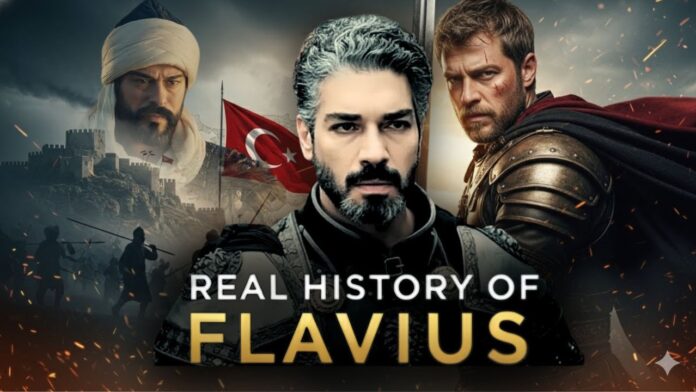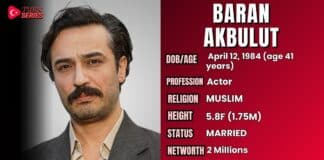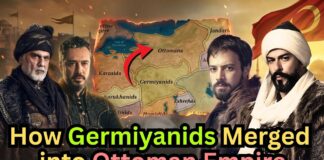He appears at the edge of a collapsing world—a man walking between two identities, two empires, and two destinies. In Kuruluş: Orhan, the character Flavius arrives as a figure shaped by loyalty, conflict, and the fading light of Byzantium. But beneath the drama lies a deeper question: Who is Flavius really based on? The series describes him as “the last breath of Byzantium in Bursa.” Played by Şükrü Özyıldız, Flavius represents a transitional world where the Byzantine Empire weakens and the Ottomans rise under Orhan Gazi. His story hints at both resistance and reinvention. Historically, no single figure perfectly matches him — but two powerful inspirations emerge.
Possible Historical Inspirations Behind Flavius
1. The Roman Flavian Dynasty (Name Origin)
The name “Flavius” immediately recalls the Roman imperial family of the 1st century CE —
Emperor Titus Flavius Vespasianus and his father Vespasian.
Their reign oversaw:
-
The capture of Jerusalem (70 CE)
-
The completion of the Colosseum
-
Major political reforms
-
Natural disasters like the eruption of Vesuvius
The name carries immense imperial weight. By choosing “Flavius,” the series may be borrowing the grandeur and authority of Roman heritage.
But historically, this inspiration has major problems:
-
The Roman Flavians lived 1,200 years earlier
-
No connection exists between their dynasty and 14th-century Anatolia
-
There’s no evidence of any Flavian-descended noble resisting Ottomans in Bursa
Conclusion:
The Roman connection provides symbolism, not accuracy.
2. Evrenos Bey — A Byzantine Noble Who Became an Ottoman Commander
A far stronger historical possibility is Evrenos Bey, a frontier commander active during the early Ottoman period.
Legend suggests he was:
-
Originally a Byzantine Greek noble
-
Possibly the son of a local governor near Bursa or Karesi
-
Someone who defected to the Ottomans after the capture of Bursa in 1326
-
A convert to Islam
-
A military leader under Orhan Gazi and later Murad I
Evrenos became one of the most influential commanders in early Ottoman expansion, especially in:
-
Thrace
-
The Balkans
-
Frontier raids
-
Early administrative settlements
His life perfectly mirrors the themes of identity, loyalty, and transformation that define Flavius.
Flavius in the series embodies:
-
The last hope of Byzantium
-
The first shadow of Ottoman power
-
A warrior torn between faith and empire
Evrenos fits this emotional and historical mold—even if his real name was never “Flavius.”
Which Inspiration Is More Accurate?
Comparing both possibilities reveals a clear winner.
The Roman Flavian Connection
-
Pros: Powerful name, imperial symbolism
-
Cons: Wrong century, wrong geography, no matching figure
The Evrenos Bey Connection
-
Pros:
-
Fits the 14th-century Anatolian context
-
Aligns with Orhan Gazi’s timeline
-
Matches the themes of conversion and dual identity
-
Reflects frontier warfare and political shifts
-
-
Cons:
-
Early life uncertain
-
Name does not match
-
Overall:
Evrenos offers a grounded, historically compatible foundation, while the Roman Flavian name adds aura and symbolic meaning.
Flavius: A Symbol, Not a Single Man
When we put the pieces together, Flavius in Kuruluş: Orhan appears to be a composite character crafted from multiple influences:
-
The imperial echo of the Roman Flavians
-
The frontier legacy of Evrenos Bey
-
The emotional weight of empires rising and falling
He is not meant to represent one specific historical individual. Instead, he embodies an entire era of transition — a world where loyalties shift, civilizations fade, and new powers emerge.
Flavius stands for:
-
The final breath of Byzantium
-
The early pulse of the Ottoman frontier
-
The human cost of empire
Why Flavius Matters in the Story
His character resonates because he stands exactly at the crossroads:
-
Between Rome’s memory and Byzantium’s decline
-
Between Christianity and Islam
-
Between rebellion and allegiance
-
Between the old world and the world to come
When he walks the walls of Bursa, he carries centuries of collapse and rebirth on his shoulders.







